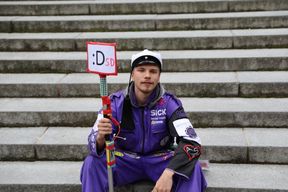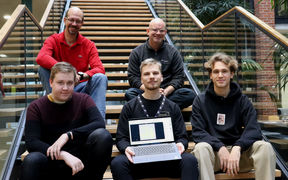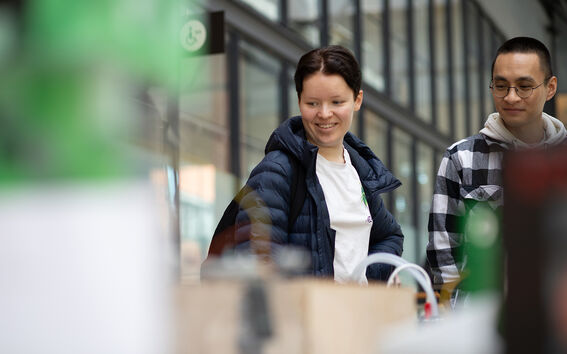Digital Systems and Design, Bachelor of Science and Master of Science (Technology)
Digital Systems and Design will make you an expert at the intersection between electrical engineering and design, with the hands-on skills to lead in your field.

After Verneri Hirvonen from Joensuu completed his general upper secondary education, he left to study in Scotland. However, studying abroad was not what he had expected, and he returned to Finland after the first academic year. Verneri applied to the Digital Systems and Design major available in English at Aalto University, and in spring 2021 he became the first student to graduate from the major.
I completed upper secondary school as IB studies in English, and I knew early on that I wanted to continue my studies in English. At the time, I wanted to move to an English-speaking country to study after upper secondary school. In fact, I was admitted to the University of Glasgow, and I started my studies there. After a year, however, I noticed that I did not really like studying in Scotland, and the local school system was also quite different compared to Finland. So I moved back here.
I decided to apply for the Digital Systems and Design major because it seemed interesting in terms of content, and I felt that a bachelor's programme in English was a great way of getting the experience of studying abroad – while staying in Finland.
Studies in the programme place quite a lot of emphasis on programming, but I myself have been particularly interested in hardware and electronics design. Therefore, I took optional courses and minor subjects that allowed me to focus on hardware and electrical engineering. I like studying at Aalto because the teaching is very flexible. When I studied abroad, all the courses and studies were practically pre-planned, and the students had very little say in the matter.
One of my favourite courses has been Programming Parallel Computers. It is a master's level course in computer science and engineering, which can also be taken at the end of bachelor's studies. My second favourite course was a field theory course that is part of the Finnish-language Bachelor's Programme in Electrical Engineering. Both courses were extremely well implemented, even though they were carried out remotely. The contents showed that the lecturers had a lot of experience in their respective fields, and the topics were interesting.
Aalto offers plenty of opportunities for anyone who is interested in working during their studies. I myself have worked at Aalto as a course assistant and a research assistant throughout my studies. Trying out different things even before graduation is a great way to discover your own areas of interest.
I received a part-time job in Professor Yu Xiao's research group already during my first year at Aalto, and last summer I worked in Professor Jussi Ryynänen's research group at the Department of Electronics and Nanoengineering. I got to work with process and computer design, for example.
The bachelor’s programme also includes design studies, which is not really my thing. However, I was able to build a programme that suited my interests by choosing suitable minor subjects and optional courses. Understanding design is also useful in working life – it provides a context for technology, allowing you to understand why technology is created and whether it is even reasonable in all cases to start building an intricate system if it is not practical.
I do not believe that the growth of digitalisation will start to decline any time soon. Instead, I am sure there will be plenty of work available in the field of technology. Computers started to become more commonplace in the 1970s, and already electronics and the Internet are everywhere. What will the situation be like in 50 years? For me, the most important thing is developing something new, and I have continued my studies in the Master's Programme in Electronics and Nanotechnology.
I recommend the programme especially for all students who are still a bit unclear on what their area of specialisation should be. The programme extensively explores the field and its possibilities, and the bachelor's studies offer a great opportunity to discover your own interests.
The new processor is suitable, for example, for 6G transceivers and encryption technology. The project encourages young people to study microelectronics; skills that are in high demand in Finland.

Take a closer look at the major or read an interview with another student in the programme, Veera Ihalainen.

Digital Systems and Design will make you an expert at the intersection between electrical engineering and design, with the hands-on skills to lead in your field.

With Digital Systems and Design as her major, Veera has particularly liked the project courses and programming, even though she does not have a background in coding

Electricity is everywhere, and our society would not function without it. As a student at the School of Electrical Engineering, you can find solutions to issues related to sustainable development and human well-being.


